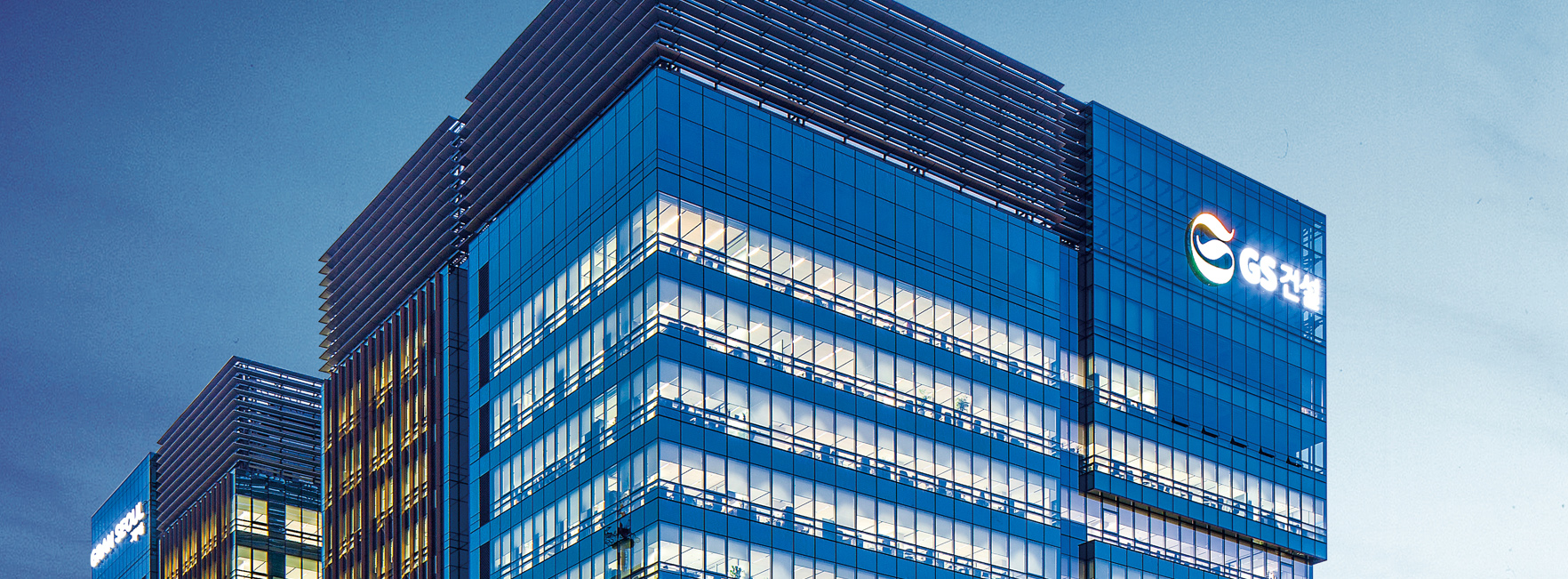
Our Story
Over 50 years of partnering with clients and communities to shape our world.
Rooted in South Korean values of collaboration and innovation, our journey reflects our dedication to building a better world. As we move forward, we stay focused on delivering sustainable, people-centred solutions that evolve with community needs and future challenges.
Our History
Pioneering innovation and a new future
The 2020s have been marked by GS E&C’s continued drive for innovation and sustainability. The company expanded its global footprint with strategic acquisitions, such as Elements Europe and Danwood S.A., leaders in modular housing. GS E&C has also made significant strides in green technologies, including the export of the Green Hydrogen Plant Module to the United States and the opening of its R&D Center focused on sustainable development. Key projects like the North East Link in Australia and the Oman seawater desalination project underscore the company’s commitment to delivering cutting-edge infrastructure worldwide. As the decade progresses, GS E&C continues to lead in sustainable practices and technological advancements, shaping the future of construction and infrastructure.
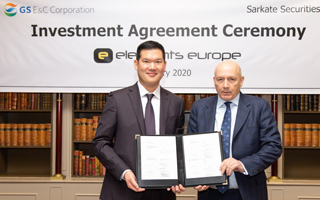
Sustainability and global leadership
The 2010s were a decade of remarkable achievements for GS E&C, characterised by a strong focus on sustainability and global leadership. The company made significant inroads into new markets, and secured major contracts for projects including solar power plants, wastewater treatment facilities, and bridges. GS E&C consistently ranked among the world’s top construction companies and was recognised for its commitment to sustainable practices, earning a place on the Dow Jones Sustainability Index for several consecutive years. This decade solidified GS E&C’s reputation as a leader in both innovation and responsible development on the global stage.
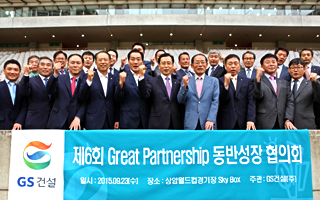
Rebranding, expansion and technological leadership
The 2000s were a pivotal decade for GS E&C, marked by significant rebranding, global expansion, and technological advancements. In 2005, the company rebranded as GS Engineering & Construction Corp., signaling a new era. The launch of the “Xi” apartment brand positioned GS E&C as a leader in premium residential development, with multiple awards underscoring its success. The decade also saw GS E&C enter the nuclear power sector and expand into Vietnam. By the end of the 2000s, GS E&C had established itself as a forward-thinking leader, recognised for innovation, sustainability, and financial strength.
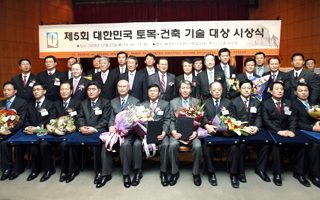
Innovation and global recognition
The 1990s were a decade of strategic growth and international recognition for GS E&C. The company solidified its global presence, earning construction licenses in Japan and expanding into Thailand and China. Significant milestones include the merger to form LG Engineering & Construction Corp in 1999 and the introduction of advanced environmental management systems. Throughout the decade, GS E&C also focused on innovation, securing patents and leading in sustainable practices. By the end of the 1990s, GS E&C had positioned itself as a leader in global infrastructure and construction, driven by a commitment to quality and environmental stewardship.
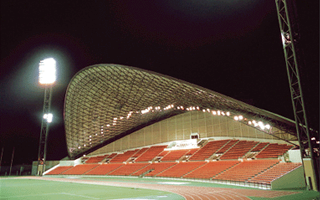
International growth and strategic milestones
The 1980s were a transformative decade for GS E&C, marked by international expansion and strategic achievements. In 1981, the company took a significant step by going public with its Initial Public Offering. Throughout the decade, GS E&C expanded globally, establishing key subsidiaries in the U.S. and the Middle East, and completing major projects like the Lucky Goldstar Twin Tower in 1987. By the end of the decade, GS E&C had firmly positioned itself as a leading international contractor with a vision for the 21st century.
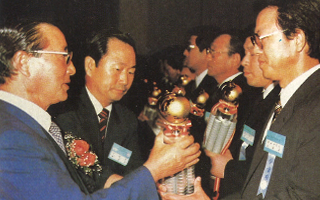
Expanding foundations and global reach
The 1970s marked a decade of significant growth for GS E&C as the company began establishing its global footprint. In 1975, the company was rebranded as Lucky Development Co., aligning with its expanding vision. By 1977, the establishment of Lucky International Construction Co. solidified the company’s commitment to global expansion. The decade culminated in 1979 with a strategic merger with Lucky Overseas Construction Corp., enhancing its capabilities.
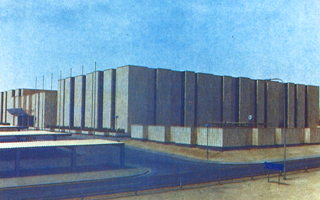
GS E&C's earliest roots begin with Lackhee Development Co.
Lackhee Development was incorporated as the construction arm of Lucky-Goldstar Group (LG Group)
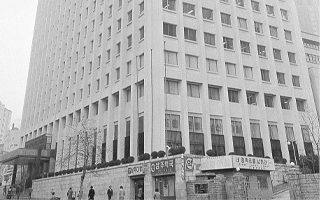

The 2020s have been marked by GS E&C’s continued drive for innovation and sustainability. The company expanded its global footprint with strategic acquisitions, such as Elements Europe and Danwood S.A., leaders in modular housing. GS E&C has also made significant strides in green technologies, including the export of the Green Hydrogen Plant Module to the United States and the opening of its R&D Center focused on sustainable development. Key projects like the North East Link in Australia and the Oman seawater desalination project underscore the company’s commitment to delivering cutting-edge infrastructure worldwide. As the decade progresses, GS E&C continues to lead in sustainable practices and technological advancements, shaping the future of construction and infrastructure.

The 2010s were a decade of remarkable achievements for GS E&C, characterised by a strong focus on sustainability and global leadership. The company made significant inroads into new markets, and secured major contracts for projects including solar power plants, wastewater treatment facilities, and bridges. GS E&C consistently ranked among the world’s top construction companies and was recognised for its commitment to sustainable practices, earning a place on the Dow Jones Sustainability Index for several consecutive years. This decade solidified GS E&C’s reputation as a leader in both innovation and responsible development on the global stage.

The 2000s were a pivotal decade for GS E&C, marked by significant rebranding, global expansion, and technological advancements. In 2005, the company rebranded as GS Engineering & Construction Corp., signaling a new era. The launch of the “Xi” apartment brand positioned GS E&C as a leader in premium residential development, with multiple awards underscoring its success. The decade also saw GS E&C enter the nuclear power sector and expand into Vietnam. By the end of the 2000s, GS E&C had established itself as a forward-thinking leader, recognised for innovation, sustainability, and financial strength.

The 1990s were a decade of strategic growth and international recognition for GS E&C. The company solidified its global presence, earning construction licenses in Japan and expanding into Thailand and China. Significant milestones include the merger to form LG Engineering & Construction Corp in 1999 and the introduction of advanced environmental management systems. Throughout the decade, GS E&C also focused on innovation, securing patents and leading in sustainable practices. By the end of the 1990s, GS E&C had positioned itself as a leader in global infrastructure and construction, driven by a commitment to quality and environmental stewardship.

The 1980s were a transformative decade for GS E&C, marked by international expansion and strategic achievements. In 1981, the company took a significant step by going public with its Initial Public Offering. Throughout the decade, GS E&C expanded globally, establishing key subsidiaries in the U.S. and the Middle East, and completing major projects like the Lucky Goldstar Twin Tower in 1987. By the end of the decade, GS E&C had firmly positioned itself as a leading international contractor with a vision for the 21st century.

The 1970s marked a decade of significant growth for GS E&C as the company began establishing its global footprint. In 1975, the company was rebranded as Lucky Development Co., aligning with its expanding vision. By 1977, the establishment of Lucky International Construction Co. solidified the company’s commitment to global expansion. The decade culminated in 1979 with a strategic merger with Lucky Overseas Construction Corp., enhancing its capabilities.

Lackhee Development was incorporated as the construction arm of Lucky-Goldstar Group (LG Group)